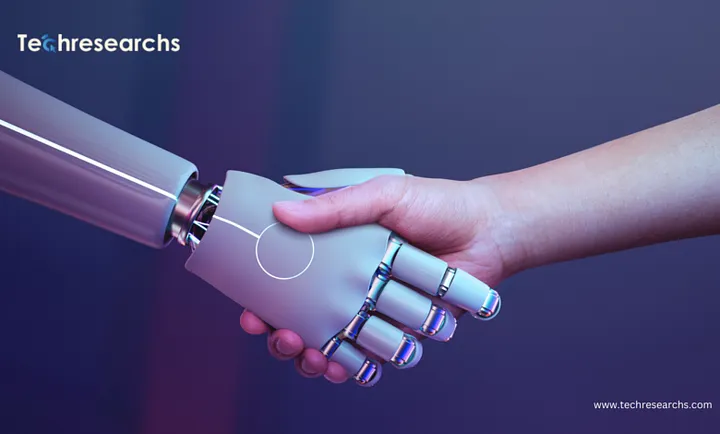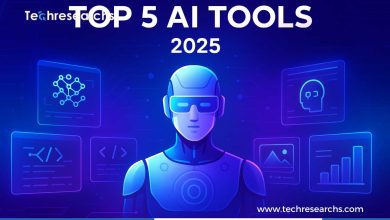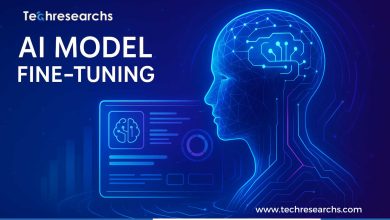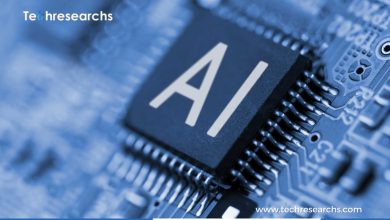Why AI is Essential for the Future of Technology

AI(Artificial Intelligence) has become a buzzword over the last decade or so. The idea behind AI is simple: machines can perform tasks much faster and more than humans. This means they can take on jobs that would otherwise need human labor.
But before you get too excited about AI, it’s important to understand why we need it. There are four main reasons why AI is becoming such a hot topic today.
WHY DO WE NEED AI(Artificial Intelligence)?
THE BENEFITS OF AI(Artificial Intelligence)
WHAT DOES IT MEAN FOR US?
THE FUTURE OF AI(Artificial Intelligence)
CONCLUSION
Today, AI is being applied across a wide range of industries, from healthcare to manufacturing to finance. In fact, the global demand for AI services is expected to reach $15.1 billion by 2025.
WHY DO WE NEED AI(Artificial Intelligence)?
- Artificial Intelligence (AI) has been around since the 1950s, but only recently have we seen its use in our everyday lives. From self-driving cars to facial recognition software, artificial intelligence is becoming present in our daily activities. This technology can be used to improve efficiency and reduce costs while increasing productivity.
- AI can be used to automate repetitive tasks that humans are not capable of doing. These tasks include data entry, transcription, and even customer service. In fact, AI is already being used to assist doctors to diagnose diseases like cancer.
- AI can help us understand how the world works. By analyzing large amounts of data, AI can teach machines to learn and make predictions about future events. This type of AI technology is called machine learning.
- AI can help us solve problems in many industries. There are many examples of companies using AI to create better products. An example would be Google Assistant. If you ask questions like ‘What’s the temperature today”, Google Assistant uses AI to answer your question.
- AI can help us build better relationships. We can use AI to recognize emotions in other people and respond. For example, if someone says they are sad, we could send them a message of encouragement.
- AI can help us become more efficient. If we can use AI to analyze data, then we can find ways to increase productivity.
THE BENEFITS OF AI(Artificial Intelligence):
- Artificial Intelligence can help us understand what we are doing wrong and how to fix it.
- Artificial Intelligence can help you learn from your mistakes and improve your skills.
- Artificial Intelligence can help humans become better at their jobs.
- Artificial Intelligence can help people who have no access to education.
- AI can help us make our lives easier.
- Artificial Intelligence can help solve problems that we cannot even imagine.
WHAT DOES IT MEAN FOR US?
The Artificial Intelligence (AI) revolution has been happening since the 1980s. Artificial intelligence (AI) is defined as any program capable of performing tasks without human intervention.
AI is being used in many industries, including finance, medicine, law enforcement, military, and education. In this video, we explain what AI means for the Cannabis Industry.
AI is becoming increasingly popular in the legal industry. There are already several cases around the country where ML models have helped lawyers determine whether their clients should be charged.
Besides, AI software is helping companies learn about consumer behavior and make decisions about marketing strategies. Some marketers believe that AI-driven programs could replace the need for human employees.
As technology becomes more advanced, it’s developing decision-making skills that allow it to predict future trends.
As consumers, we can expect to see AI become even more prevalent in our lives. From self-driving cars to automated financial advice, AI is already ingrained in our world. And now, it seems poised to disrupt the legal industry.
THE FUTURE OF AI(Artificial Intelligence):
Deep Learning
Deep learning is a subset of machine learning that involves building neural networks, which are software systems modeled after how neurons work in your brain. Neural networks use layers of nonlinear processing elements (neurons) to learn representations of data. These models can be trained using large amounts of data and then tested against other data sets.
Reinforcement Learning
Reinforcement learning is a subfield of artificial intelligence concerned with how agents should take action in dynamic environments. An agent uses its observations of the environment to determine what action to perform. In this way, reinforcement learning differs from classical control theory, where the controller determines what action to perform given some knowledge of the system dynamics.
Transfer Learning
Transfer learning is the ability to apply learned skills from one context to another. This means that we can train a deep learning model to recognize cats, but then transfer those same features into a different problem like recognizing dogs.
CONCLUSION:
Artificial intelligence (AI) has been around since the 1950s, but only recently has it started to become a reality. As technology advances, so will AI, which means that it will continue to change our lives forever.



